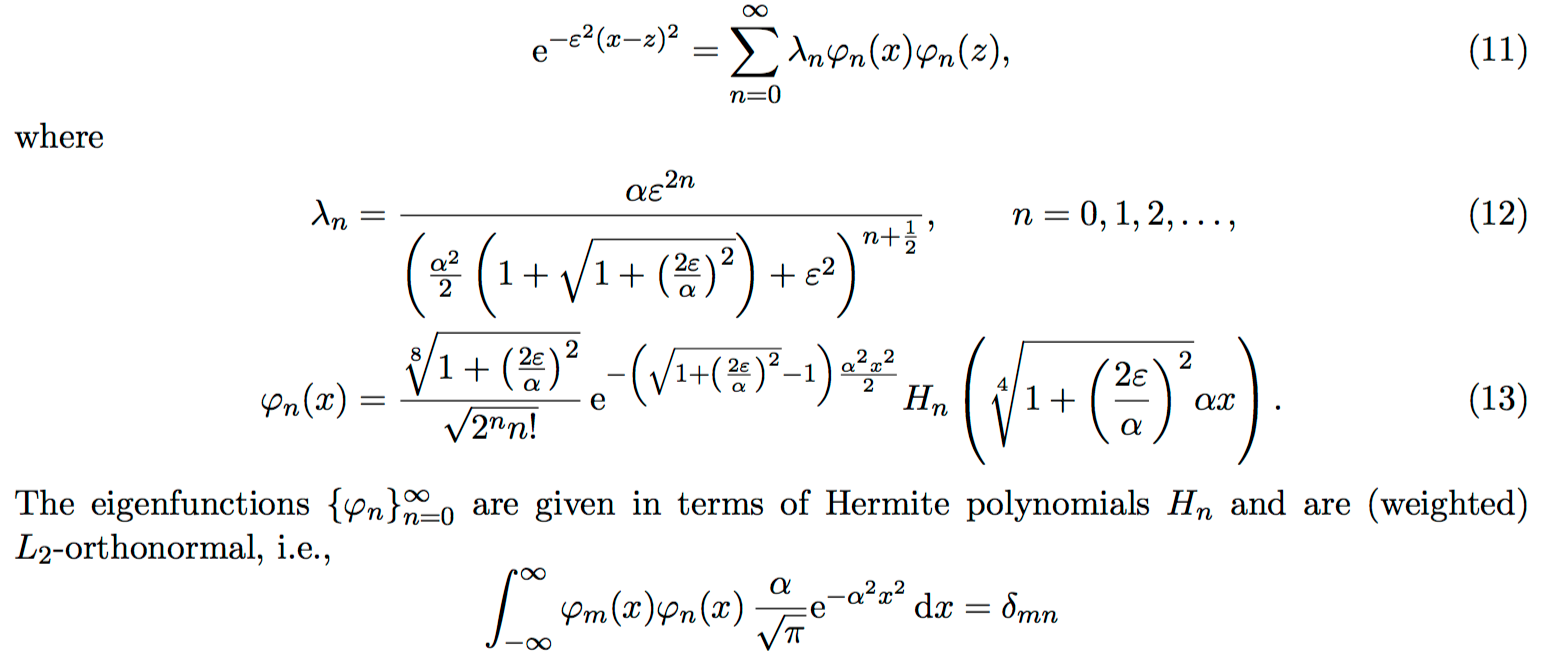If I look at the Guassian kernel function $e^{- \frac {\vert x - y\vert_2^2 }{2 w^2 } }$ for $x, y \in \mathbb{R}$. Then w.r.t the Gaussian measure $N(\mu,\sigma)$ I believe it is true that this has a discrete spectrum such that the eigenfunction of the $i^{th}$ largest eigenvalue is proportional to $e^{-\frac{(x-\mu)^2 }{2 \sigma^2 } \frac{ -1+\sqrt{1+2\beta}}{2 } }H_{i-1} ( (\frac{1+2\beta }{4})^{\frac{1}{4}}\frac{x-\mu}{\sigma} )$ where $\beta = 2 \frac{\sigma^2}{w^2}$ and $H_{i-1}$ is the $(i-1)^{th}$-Hermite polynomial.
I can't remember where I saw this result and all I have is a note with me with this result written on it.
Can someone kindly reference to any derivation and or discussion of this?
Is there an immediate generalization of this to a case where $x,y \in \mathbb{R}^d$?
There is this discussion on MO here at, Gaussian kernel eigenfunctions and I would like to be able to relate that to this above result.

